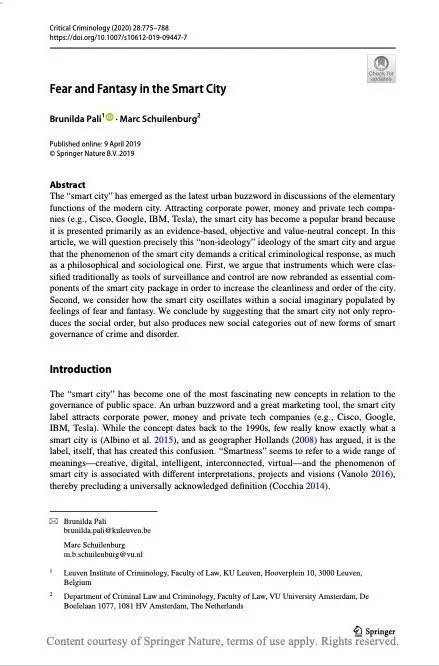Fear and Fantasy in the Smart City
By Brunilda Pali and Marc Schuilenburg
The “smart city” has become the latest urban buzzword to rethink the elementary functions of the modern city. It attracts money, corporate power, and private tech companies (e.g. Tesla, Google, Cisco, IBM). An important reason why the smart city has become such a popular brand is the fact that it is presented as a value-neutral, objectivist, rational, and evidence-base concept. In this paper, we will question what we call the “non-ideology” ideology of the smart city and argue that the phenomenon of the smart city demands a critical criminological response as much as a philosophical one. First, we argue that instruments which were traditionally classified as tools of surveillance and control are now rebranded as essential components of the smart city-package in order to increase the properness of the city. Second, we consider how the smart city oscillates within a social imaginary populated by feelings of fear and fantasy. We conclude by suggesting that the smart city not only reproduces the social order, but also produces new social categories out of new forms of smart governance of crime and disorder.
Critical Criminology; 2019; Vol. 27; iss. 4; pp. 1 - 14


